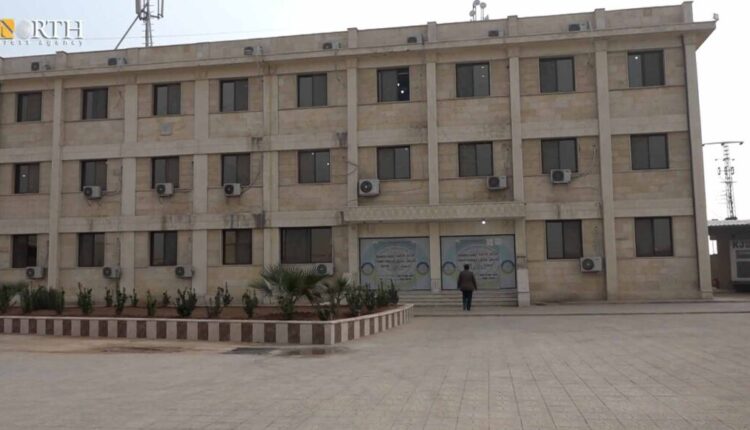
By Iman al-Nasser
DEIR EZ-ZOR, Syria (North Press) – Activists and administrators in civil society organizations believe they play a significant role in achieving stability in Deir ez-Zor Governorate, eastern Syria, through comprehensive programs targeting various segments of society.
Asma al-Khedr, an activist from Deir ez-Zor, said these organizations played a major and positive role in stabilizing the region, especially after recent events that took place in Deir ez-Zor, through holding several conferences, meetings and dialogue sessions.
On Aug. 27, the Syrian Democratic Forces (SDF) launched a military operation called “Security Reinforcement” with the support of the US-led Global Coalition on the eastern bank of the Euphrates River, specifically in Deir ez-Zor, to eradicate ISIS sleeper cells and pursue criminals who committed crimes against the local population.
Later on Aug. 30, the SDF announced the dismissal of commander of Deir ez-Zor Military Council, Ahmad al-Khabil, known as Abu Khawla, from duty, for his involvement in multiple crimes and violations.
The operation led to the eruption of clashes between the SDF and gunmen affiliated with the dismissed leader and with Nawaf al-Bashir, leader of al-Baggara tribe and a pro-Iranian figure whose groups are active in the western bank of the Euphrates which is under the control of the Syrian government forces and Iranian-backed militias.
The civil society organizations connected the official authorities with the population of Deir ez-Zor to address all issues that faced the community, al-Khedr added.
In times of crises and wars like the recent security tension and clashes that occurred in Deir ez-Zor, civil society organizations played a crucial stabilizing role. In such incidents, the need to activate the role of civil society becomes greater.
The organizations are involved in various projects to support stability in Deir ez-Zor, including service projects. They have provided assistance for farmers and ranchers, in addition to effective contributions in education and healthcare sectors, al-Khedr said.
Deir ez-Zor witnesses a deterioration in the service sector as a result of the destruction inflicted to the infrastructure during the war. The unstable security state hinders the work of many operating organizations, which are already scarce in numbers, according to officials.
Ahmad al-Shaher, director of the local organization of Development Without Borders operating in northeastern Syria, said that Syria in general and its northeastern in particular face many challenges due to political and social pressures in the region.
Civil society organizations operate in Deir ez-Zor to mitigate these challenges and support the local community and people, especially those affected by the war, al-Shaher added.
He pointed out that, in general, these organizations have played a role in promoting stability and supporting the population through projects in various sectors, such as education, agriculture, and essential services. This has been particularly evident after the recovery phase started, where service projects played the greatest role in achieving stability for the population.
Projects promoting social cohesion, conflict resolution, and civil peace initiatives have played a role in reducing conflicts in Deir ez-Zor, according to al-Shaher.
He believes, however, these projects were carried out on the basis of available resources and did not include all organizations operating in the region due to their limited number.
Specific projects are implemented according to donor guidance, which he considered a negative action, especially since the region requires substantial support. The lack of funding and the donors’ preferences hinder targeting all components of the community, al-Shaher explained.
Abdurrahman al-Ali, a media activist in Deir ez-Zor, told North Press that civil society organizations should exert a greater effort and target as much as of the community’s components to raise awareness about the importance of stability, in addition to clarifying how official and military authorities operate and contribute in building the community.
The organizations’ role becomes crucial in containing the conflicts in the region, such as the effective role they played in addressing recent events in Deir ez-Zor, according to al-Ali.
He pointed out that organizations need to focus on raising awareness among the youth to achieve stability, economic growth, and social development, as services and progress depend on stability. Al-Ali said disputes and conflicts in Deir ez-Zor exacerbated the living conditions and the disintegration of society. Collaboration between organizations, intellectuals, and the youth are essential for achieving the first steps of progress, which is stability, he noted.
